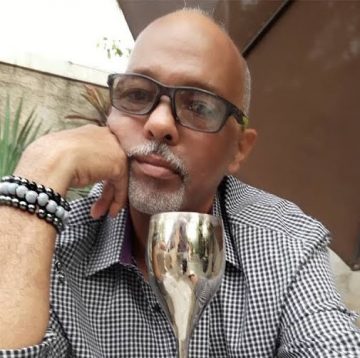ARTIST/BAND /GROUP INFORMATION
During the 1980s, the peaceful district of Delmas 18 saw, like all the other young people of the time, evolve from te x teenagers who would mark, by their talent, the history of Haitian music.
It was Garry Didier Pérèz and Jean Brutus Dérissaint. At that time, almost every afternoon, the young Brutus would sit on the doorstep of his house to play the guitar, his favorite instrument. Garry, who shared his passion for singing with his friend Patrick Martineau, always used to notice Brutus playing music, until the day when he invited him to come have fun with them at Patrick Martineau’s Bumblebee. Thus in the years 86, 87, Garry Didier Pérèz, Patrick Martineau and Jean Brutus Dérissaint met every afternoon after school to listen to music and perform them. Influenced by the zouk which was very popular in Haiti at the time, their favorite music was “Zouk galore” and their models were KASSAV, MALAVOI and RALPH TAMAR.
Two years have passed without this trio of amateurs even thinking once of forming a professional orchestra. During the rehearsal sessions after finishing beer brewing, Patrick took pleasure in placing the empty beer bottles on the cupboard in his room. On a beautiful afternoon of rehearsal, pushed by the sound coming from the loudspeakers placed on the cupboard, the beer bottles fell to the ground and shattered. The next day at Patrick’s house, after school, Garry and Brutus noticed that their friend had formed the word ZENGLEN with the shards of beer bottles scattered on the ground. This gesture marked them.
At the beginning of 1989, the trio decided to record at FX Studio by Jo Doré and Gilbert Bailli a music by Garry titled: “Koulè tan”. Then they went to the capital’s radio stations to distribute the music. Arriving at Radio Métropole, the star host of the program “Cadence des îles”, Georgio Léon Emile, asked them the name of the group. After an instant glance, the trio answered with one voice: ZENGLEN. Journalist Nancy Roc who was in the room had to reply: “This is an original name”. And so it was that for the first time on Radio Métropole, Georgio had to say these words: “A new born of the new generation of Haitian music, ZENGLEN”.
It is during this same year that the brand new group will make a splash in the music “Fidèl”, composed by the three friends. “Fidèl” has remained one of the hits of the new generation of
Haitian music. It was during this period that they decided to constitute themselves into a real professional orchestra with Carl-Henri Desmornes as manager, who was Patrick Martineau’s brother-in-law. Carl-Henri Desmornes, with his business acumen and his ability to negotiate with rigor, knew how to contribute a lot to the advancement of the ZENGLEN group which went from success to success. Then joined the team, Fanfan as a bass player and Didi, another keyboard player alongside Patrick Martineau.
The beginning of the 90s was marked in Haiti by the fever of ZENGLEN who played “Bateau fou”, a club in Pétion-Ville, “Chez Harry’s Restaurant” every Wednesday at the evening called: “Surprise Wednesday in summer”, at “Le Magritte”, as well as every Sunday at the “Steak Inn”. At the time, ZENGLEN was the good weather for young university and college students from Port-au-Prince. It was found everywhere: Blue celebrations, graduations, private parties, recreational days… It was at this same time that they launched on the Haitian market the album “An Nou Alèz” whose
flagship music which bears the title of l ‘album is a composition of the trio of musician friends. At the end of 1991, Ernst Benjamin joined the group following the departure of Fanfan and, David Charles, as a singer replacing Garry.
It was during the terrible moments of embargo that ZENGLEN went on an international tour . All the musicians, except Patrick Martineau, who at the time was a pharmacy student.
For the first time, we were going to discover ZENGLEN in Boston, New York, Colombia, Martinique, Guadeloupe and Canada. Noting the socio-political difficulties that Haiti was going through at the time: closure of universities, embargo and others, the musicians of ZENGLEN decided to settle in the United States of America. And it is on this land of adoption that this musical group will go from electronic format to full band format.
Several musicians lived the ZENGLEN experience, among which, the popular singer Gracia Delva, arrived at the end of 1995. It is a friend of Bellande Georges, (former manager of TABOU COMBO) who referred them to Gracia who, at the era lived in New York. Bellande sent for him. They found him the ideal singer. His voice, his presence on stage, his spontaneity, his energy attracted many people and increased the popularity of the group. Bellande Georges, who is considered to be the father of Gracia Delva, worked a lot on advancement of the group. It was in 1995 that Georgio Léon Emile presented it to Brutus, because they were looking for a manager to better supervise them. He devoted his time, his energy, his relationships so that ZENGLEN could flourish. Thanks to his contacts, ZENGLEN has had interesting contracts for official, private and popular evenings in Haiti and abroad. After a long crossing of the desert in 1999, ZENGLEN released in Miami a new hit titled “Tempo”, music composed by Jean-Hérard Richard (Richy). On this album, is engraved “Easy compass”, another success, signed Jean Brutus Dérissaint.
Farah Larrieux André Fouad
Visits: 169

